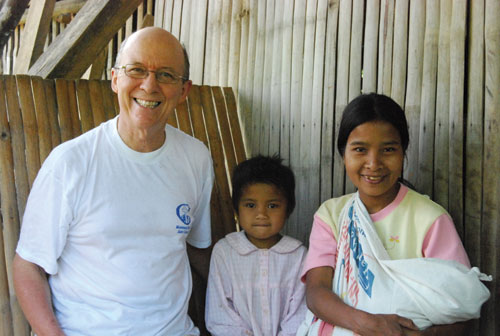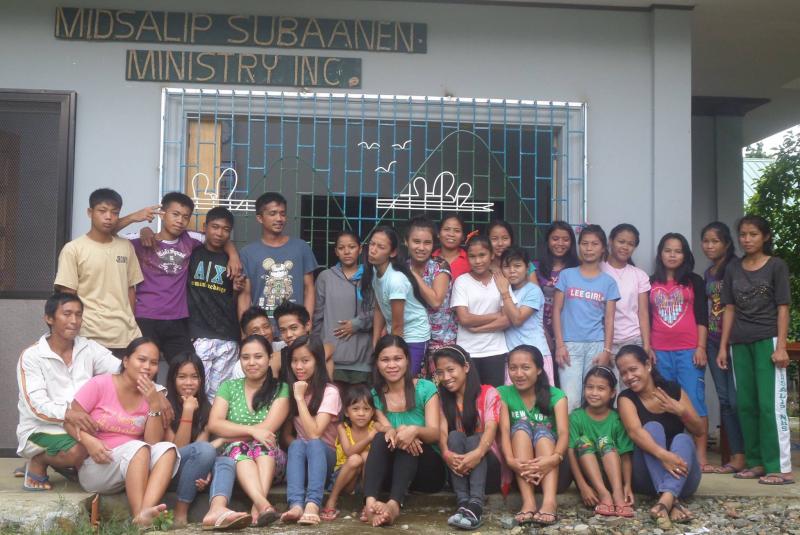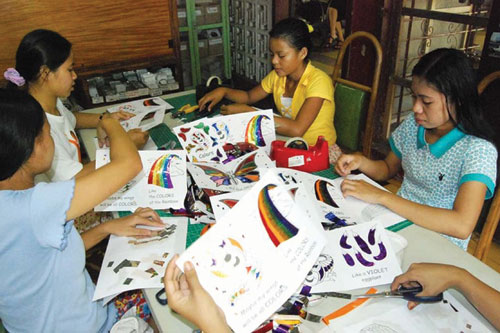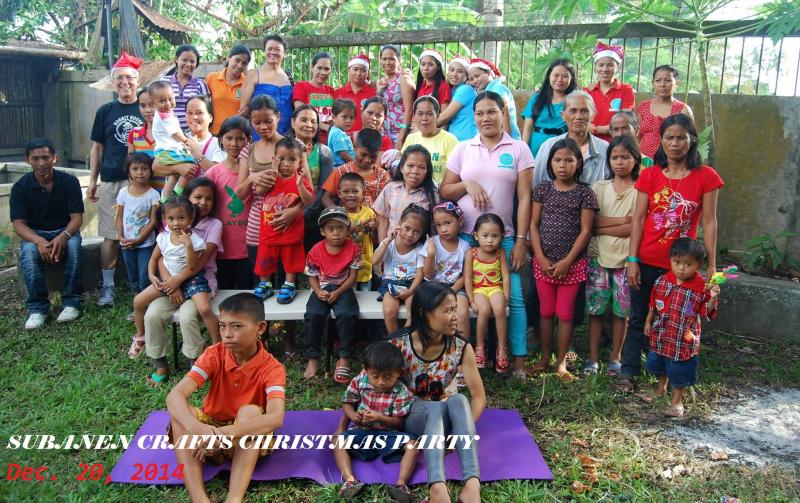The Subanens Live the Christmas Story
By Fr Vincent Busch

The Gospels give us a good idea of the joys, fears and struggles that Mary and Joseph experienced that first Christmas. Jesus was born after his parents had walked 100 kms often over rugged terrain. Mary gave birth in a stable because there was no room for them in the Inn. Then, after visits from shepherds and wise men, Mary and Joseph had to flee to avoid Herod’s soldiers. Over the past several decades the Subanen people have experienced similar joys, fears, and struggles. When Subanens hear the Christmas story they say Joseph and Mary are like us.
The Subanens are an indigenous people who live in the forested mountains of the Zamboanga peninsula in the Philippines. For centuries they fished, hunted, gardened and foraged for their food, medicine and household needs. They also formed a close spiritual relationship with their tropical habitat and they celebrated that relationship in song, dance, and ritual. Since the 1950s land-hungry settlers from other parts of the Philippines pushed the shy Subanens deeper into the forest. In the 1960s and 70s logging companies chain-sawed their forest. Then in the 1970s and 80s armed conflict broke out in the peninsula as government and anti-government forces carried out military operations which often included indiscriminate killing. And now mining companies want to bulldoze their remaining habitat. Slowly the Subanens are being evicted from their forest home. The 'inn-keepers' of extractive industries and of warring political factions have no room for the Subanens in their world.
Responding to the beauty and to the pain of the Subanen people, the Columban Sisters started the Subanen Ministry. For 35 years the Sisters have worked with Subanen elders and leaders to find healthy and sustainable ways to protect, nurture and celebrate the Subanen culture and their endangered habitat. In 2001, with the help of the Subanen Ministry, I began working with Subanens to form a livelihood project by which they could use their traditional crafting skills to make saleable jewelry, mandalas, children’s books and cards. Income from the Subanen Craft project helps the Subanen artists provide food, education, housing and health care for their families. This income is especially useful during the 'hunger season' which is the lean time between harvests.

Over the years the Subanen artists have crafted Christmas cards whose subject matter connected their experiences with the experiences of Mary and Joseph in Bethlehem. My contribution to the card-making process is to listen carefully to the Subanens and to study their habitat. Then, with their corrective help, I draw and re-draw card designs until we agree that the images were true to the Christmas story and true to the Subanen story. Then, after the finished designs are printed on card stock, the Subanen artists transform the images into works of art. With colored pencils they carefully tint each mountain, hill, and stone, and with razor-sharp blades they cut out each human figure and in lay the figures with colored paper. Each year it takes us about two months to design the cards and another five months to craft them.

Here are four examples of how the Subanens found the Christmas story in their lives:
- Subanens walk daily over precarious mountain trails and so we created cards that highlighted how Joseph and Mary carefully helped each other and their donkey through the rugged hills to Bethlehem.
- Like Mary, Subanen women also give birth in simple shelters with their farm animals kept safely nearby. Subanens know that, in such circumstances, a mother needs supportive care and so we created cards that portray a helpful Joseph who cleaned the stable, repaired the manger, gathered firewood, fetched water, made a warming fire, cooked a meal and watched over Jesus as Mary rested.
- Subanens have seen armed men killing innocent people, and they know the fear and sorrow of having to evacuate their homes and farms to save themselves and their children from such killings. And so we created cards that drew attention to the journey of a frightened Mary and Joseph as they fled Herod’s soldiers to save their child.
- Subanens know that the food they eat, the water they drink, the homes they build, the air they breathe and the beauty they behold depend on the health of the soil, rivers, plants and animals of their habitat. They know their habitat is a gift from God. And so we crafted cards that joyfully say “thank-you" to God whose humble birth on Earth invites them to live humbly with the Earth.

My years with the Subanen artists have been a meditation about living within the grace of God’s creation. It has been a mutually beneficial experience. The Subanen families get to work in a project that provides them with modest livelihoods and I get to behold the miracle of creation through the eyes of a people who are gracefully cooperating with that miracle. Indeed, our planet with all its interconnected habitats is the ongoing miracle through which God gives food to the hungry, drink to the thirsty, and a hospitable home to all.
Columban Fr Vincent Busch has been a missionary in the Philippines since
1974. He currently works with the Subanen people of Mindanao, Philippines.
See the crafts and cards of the Subanens on their website: www.subanencrafts.com
.